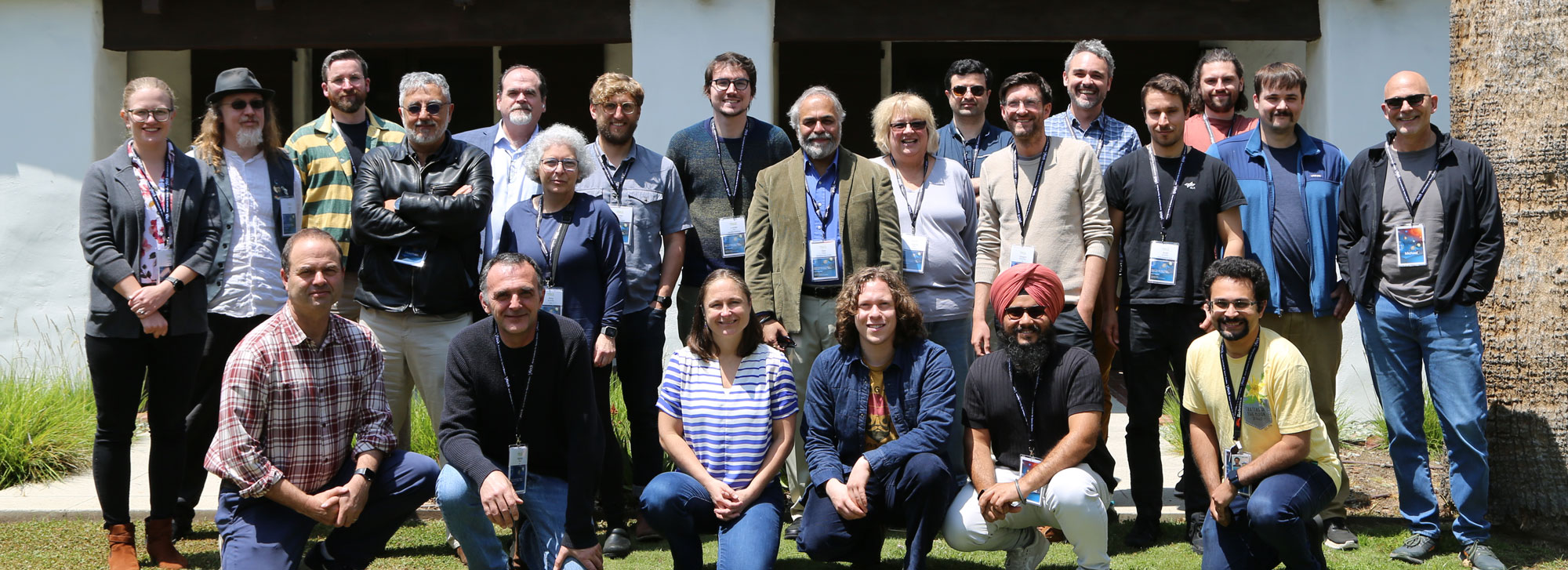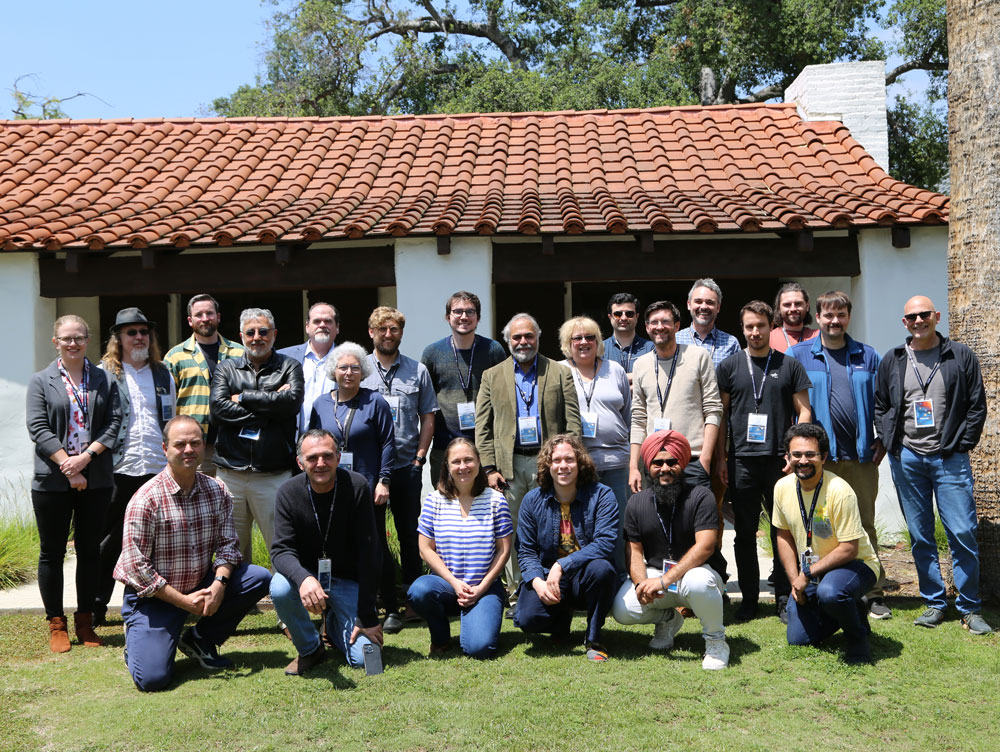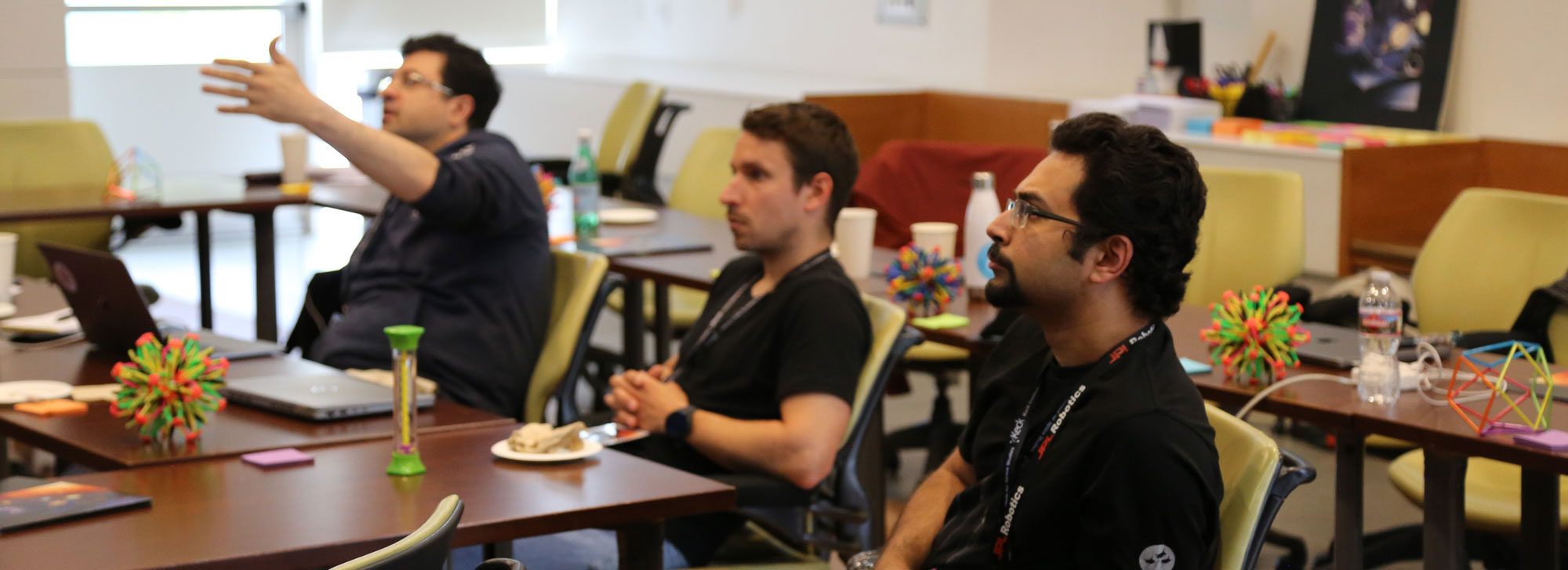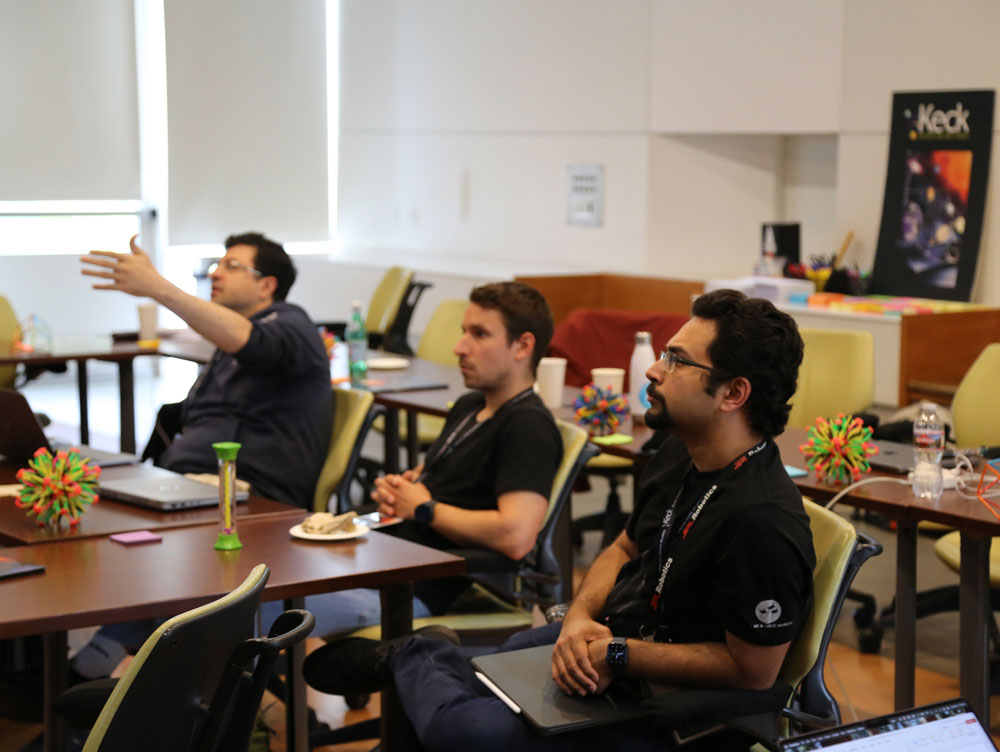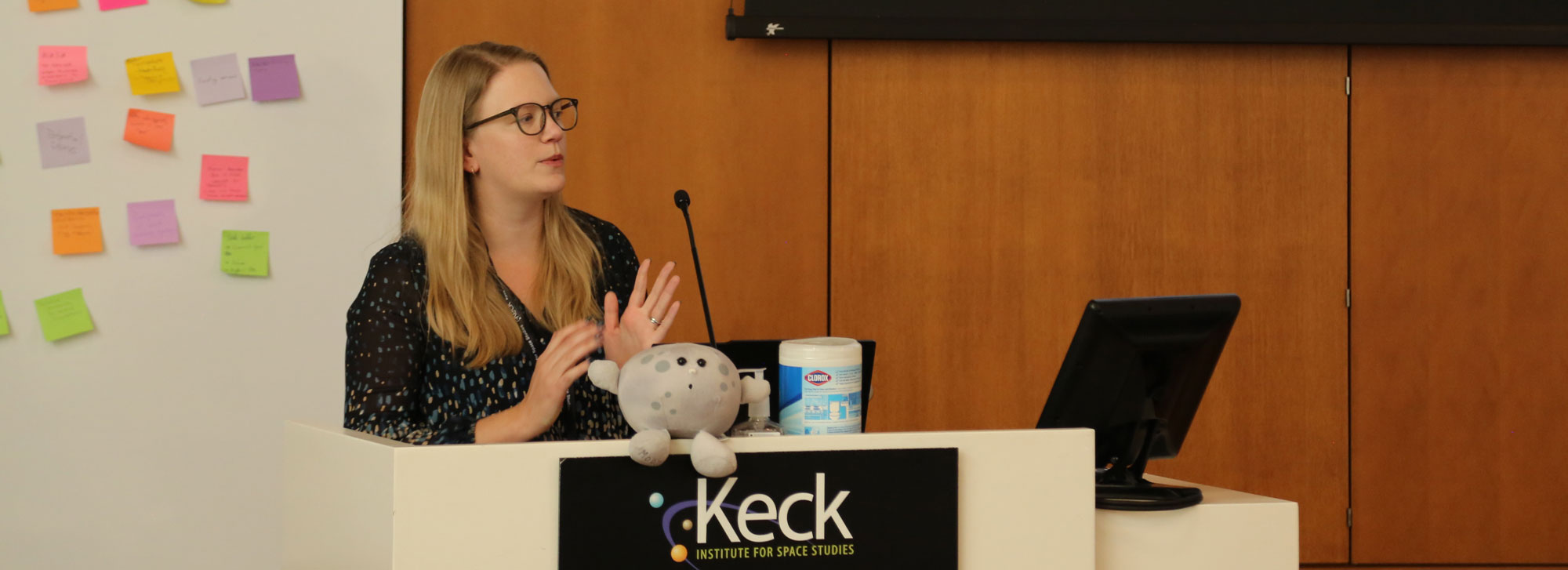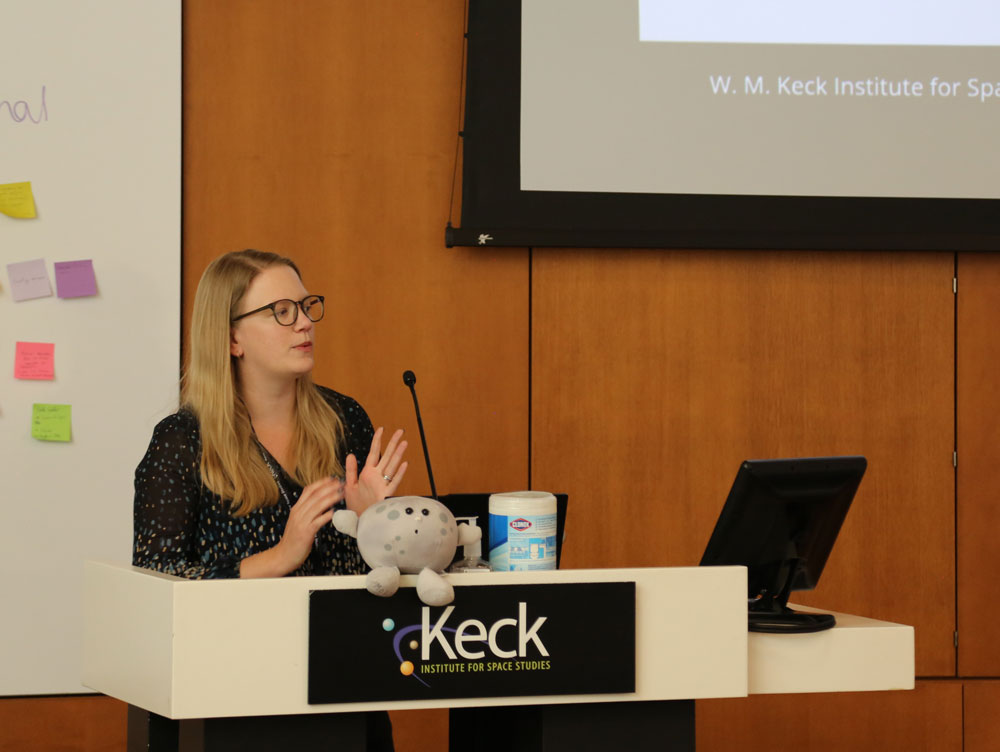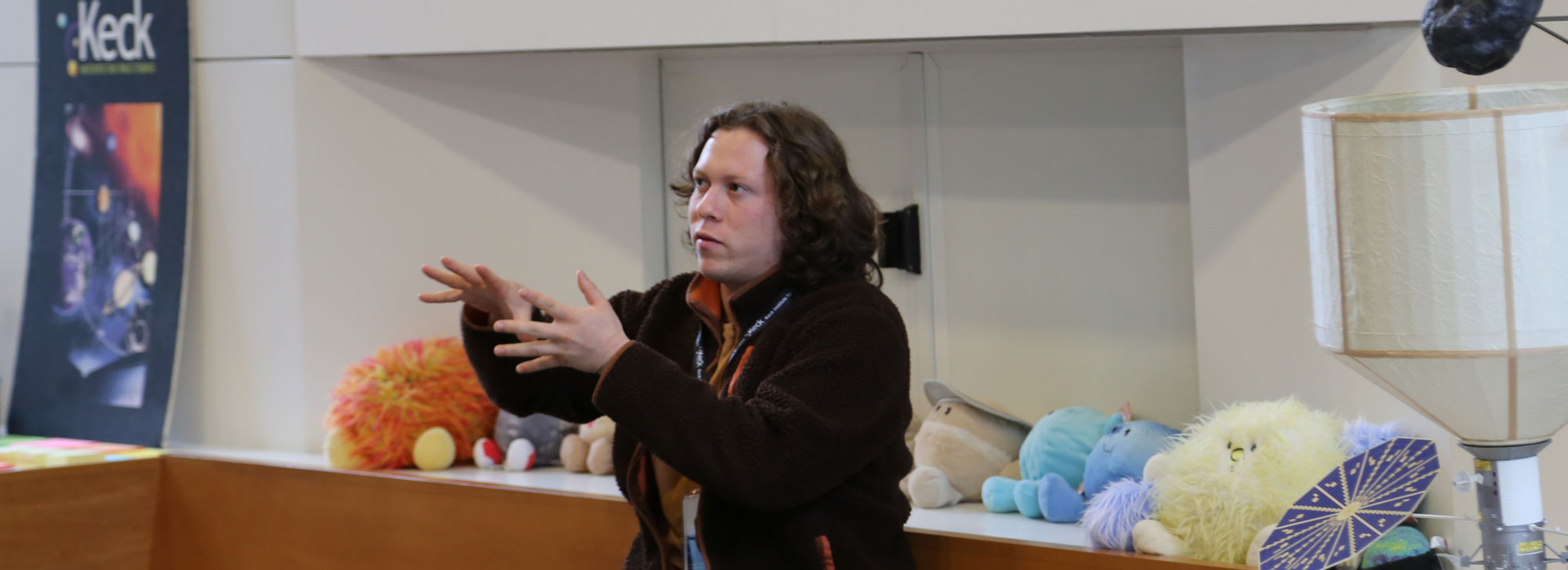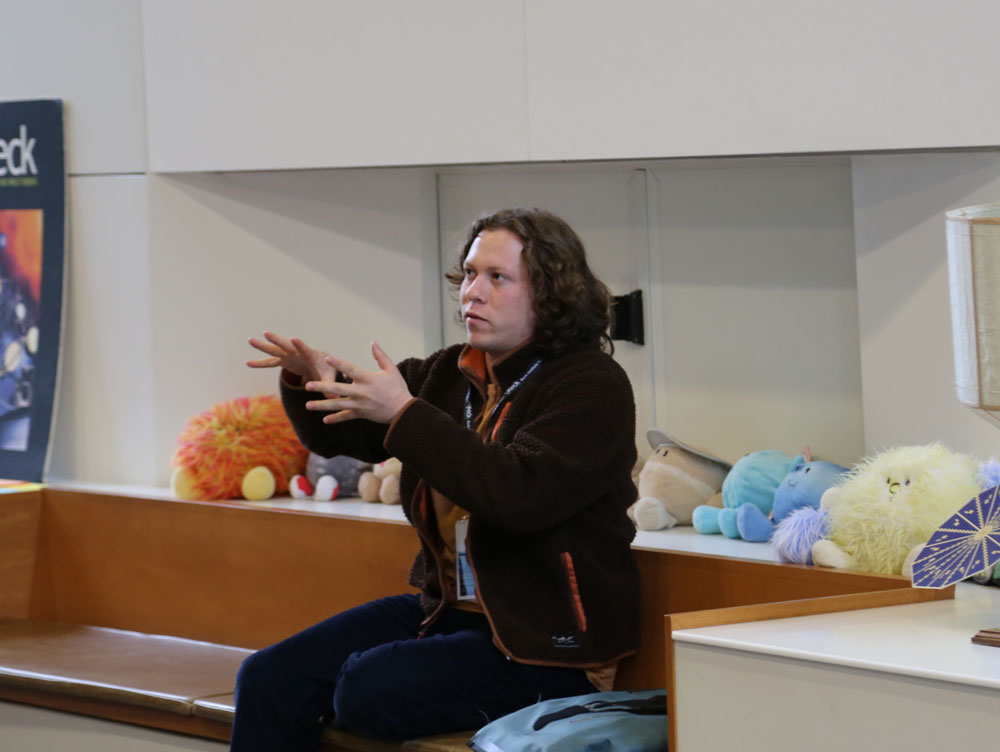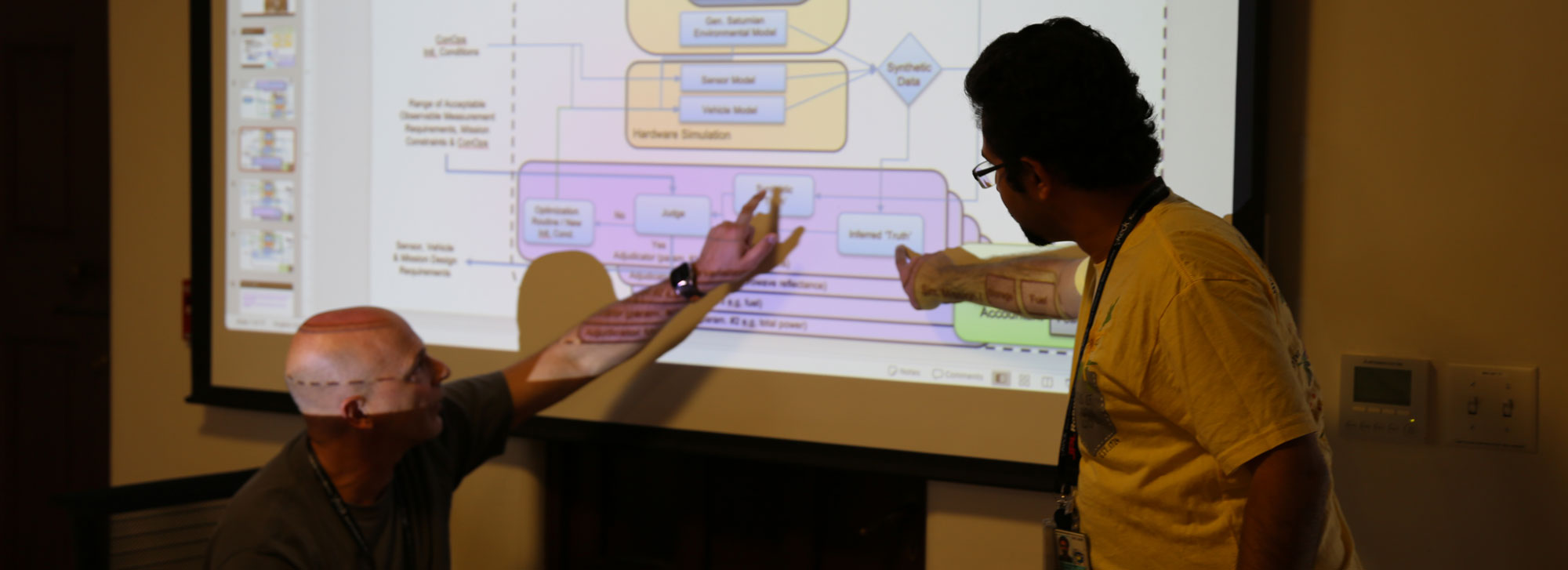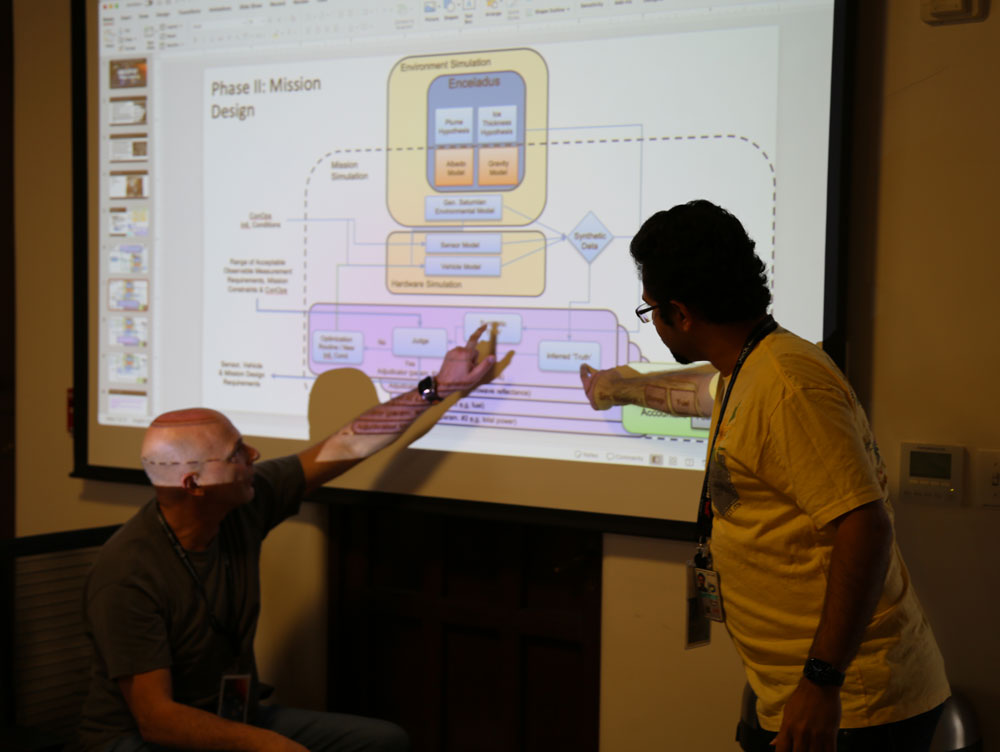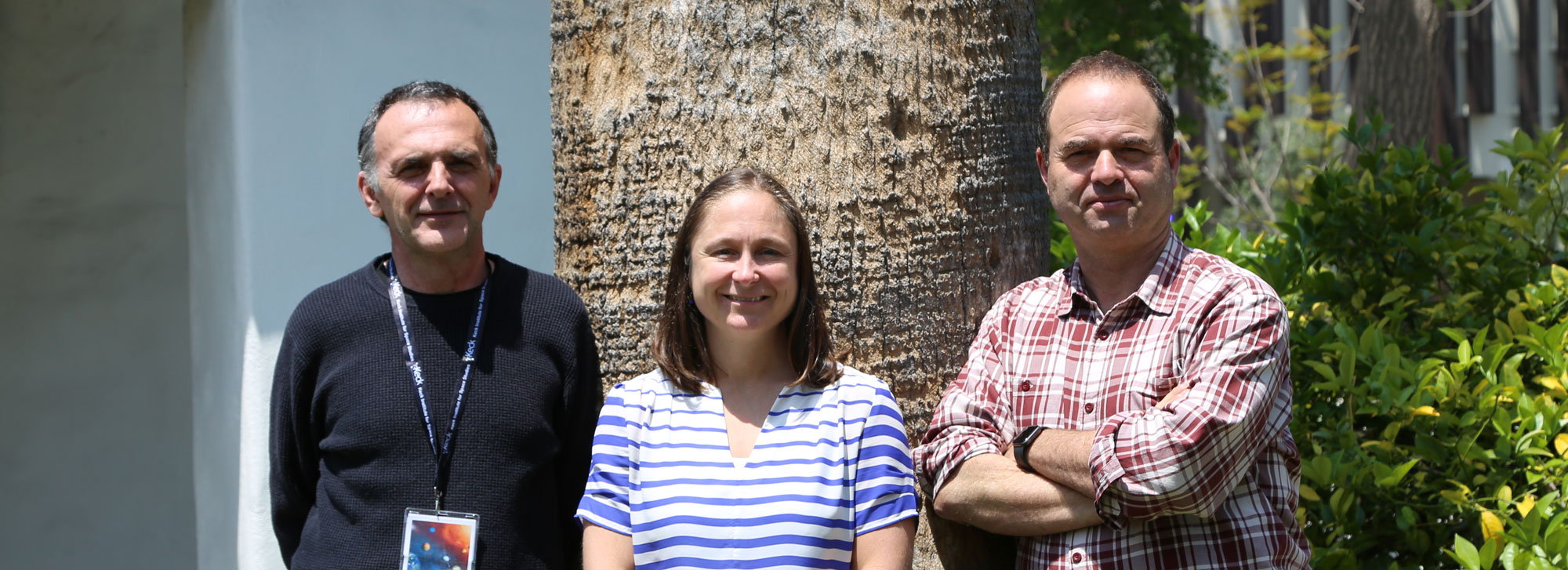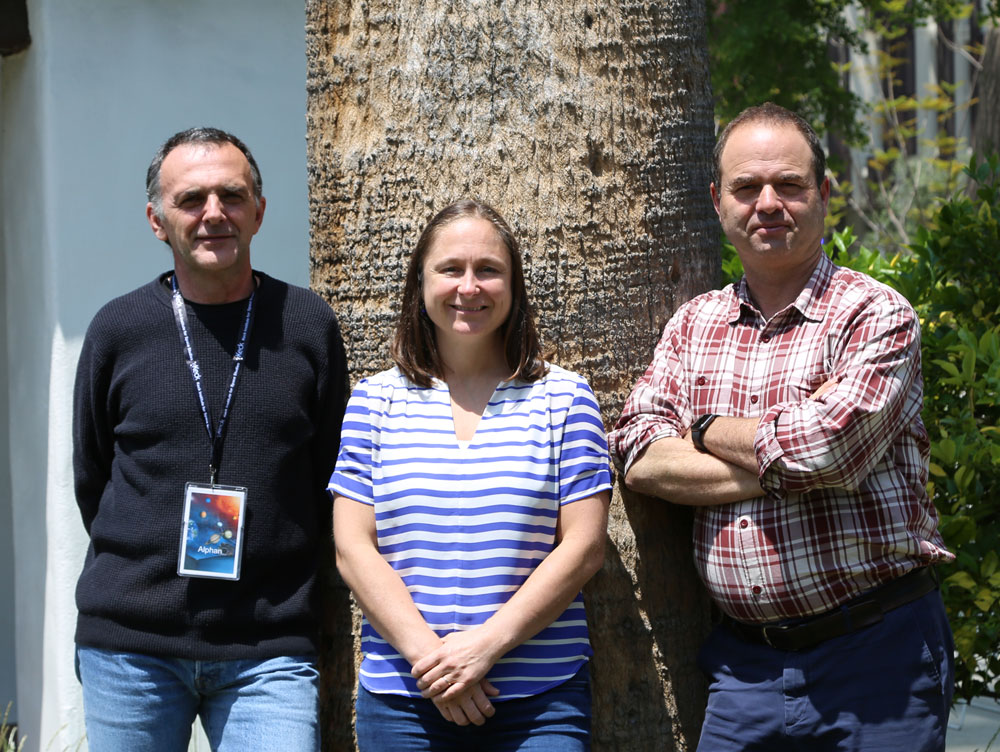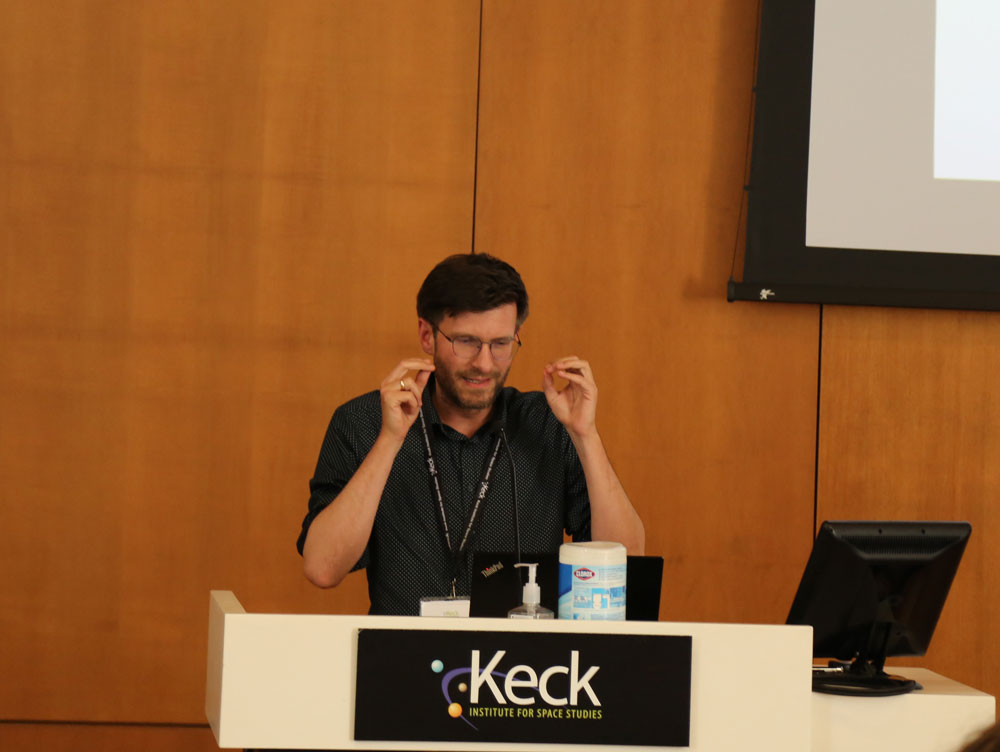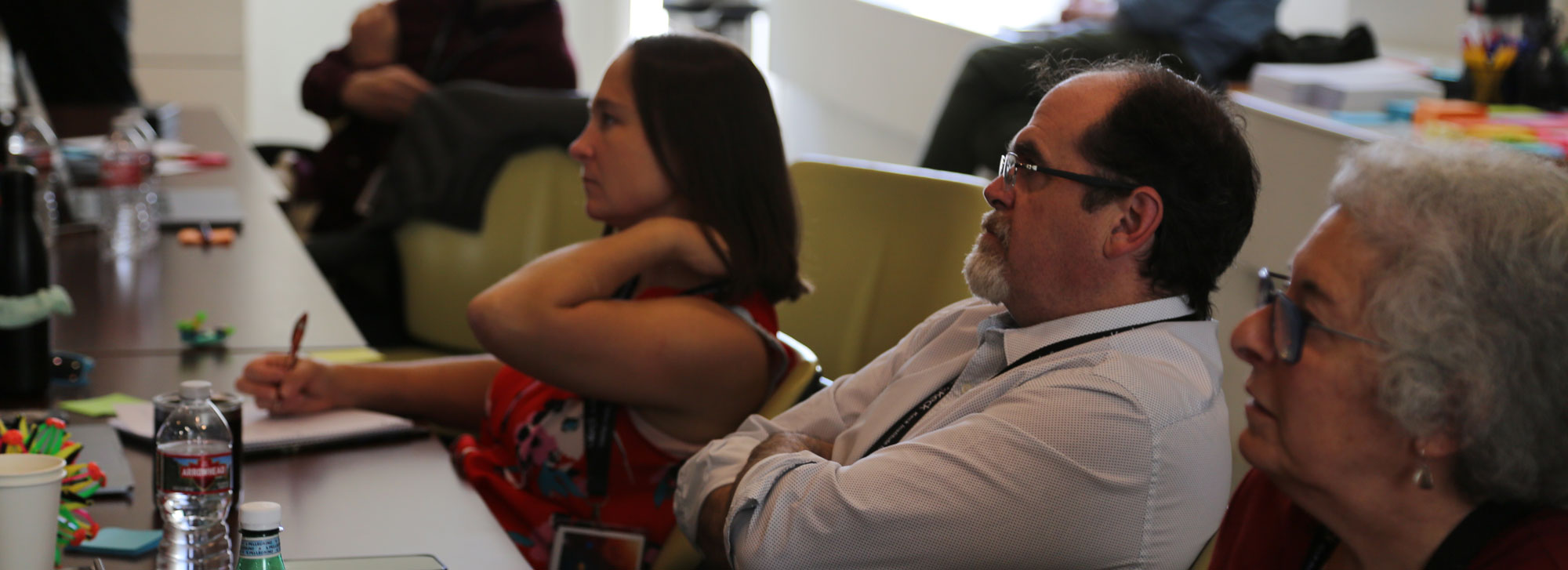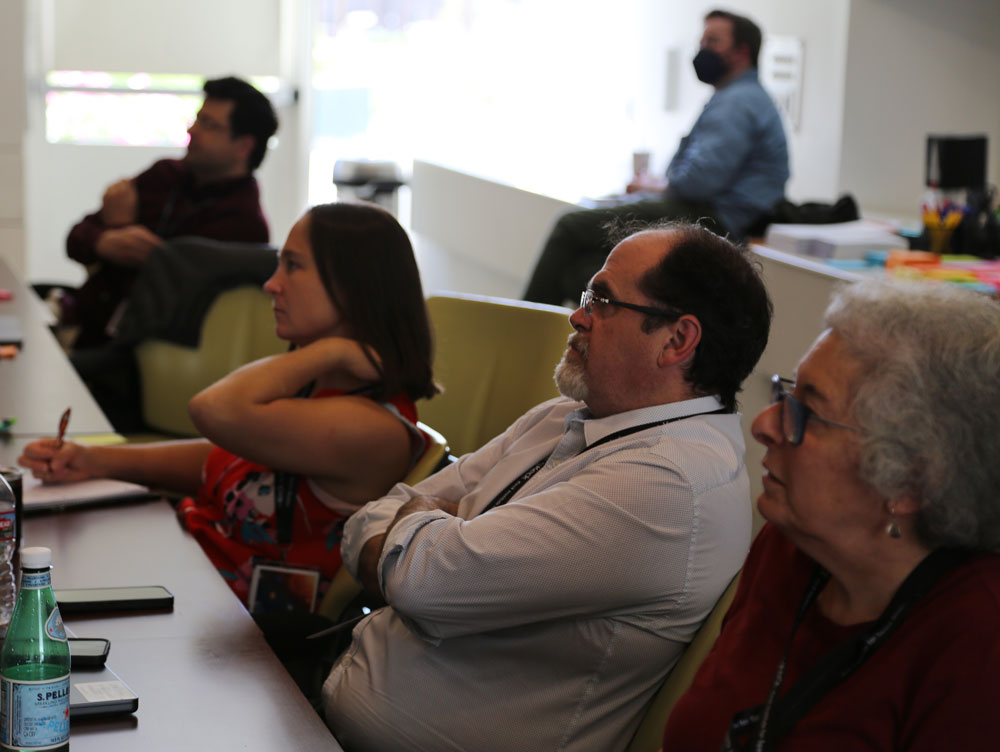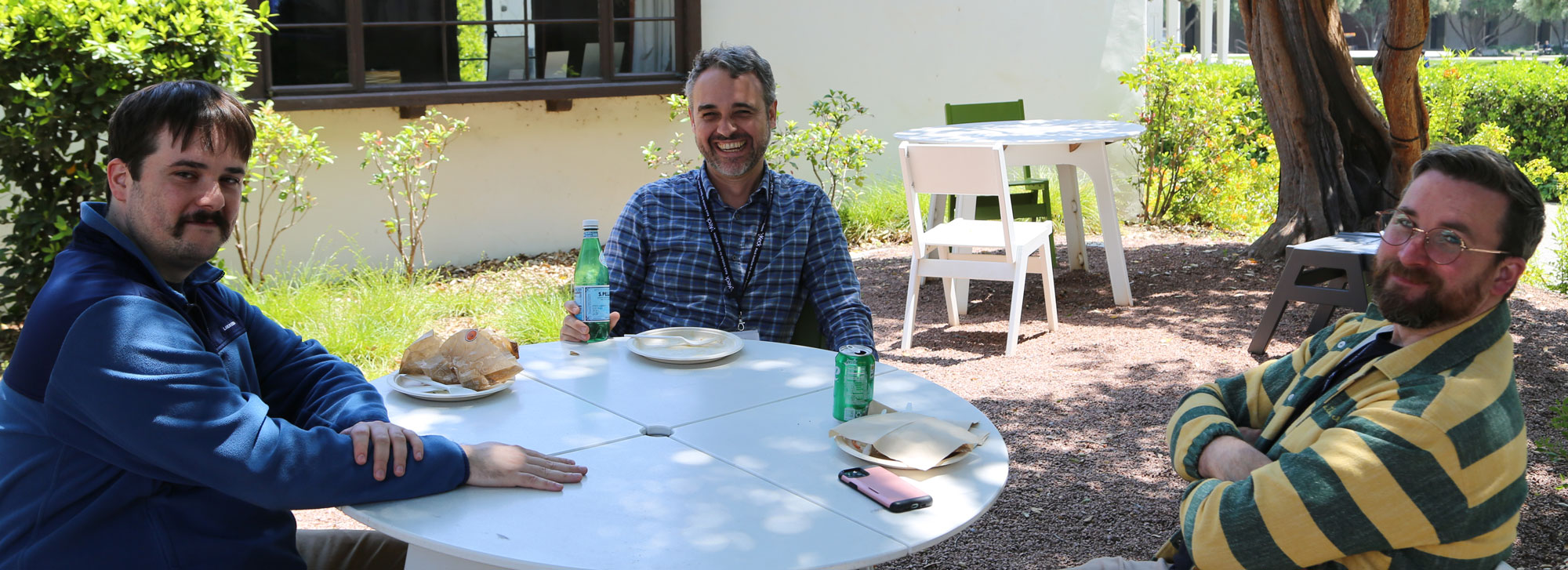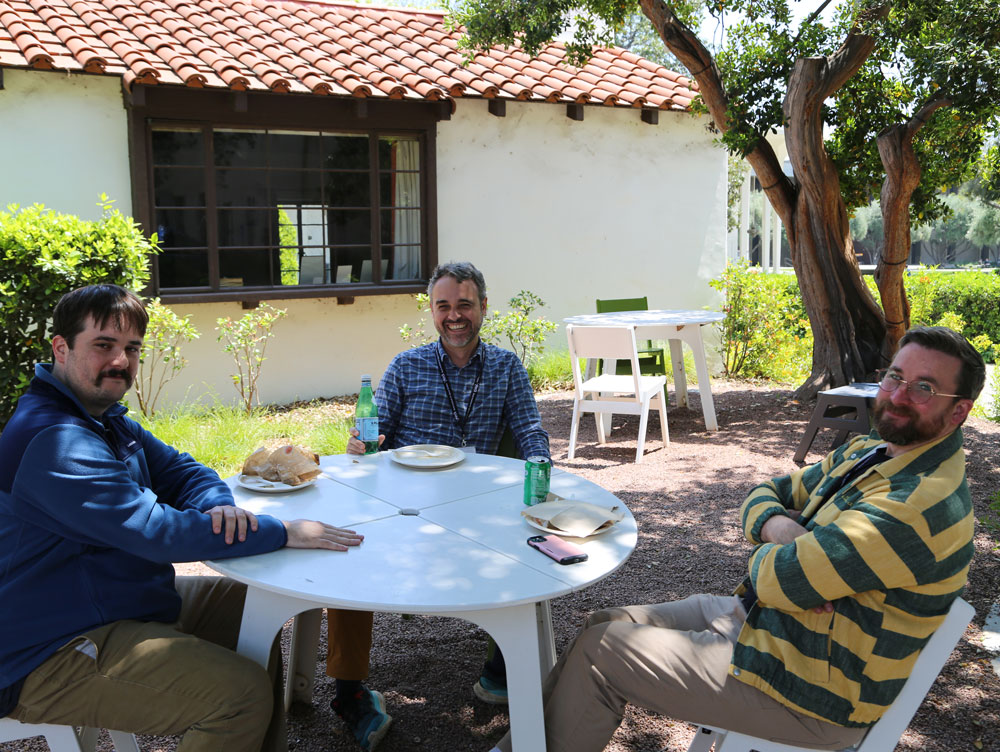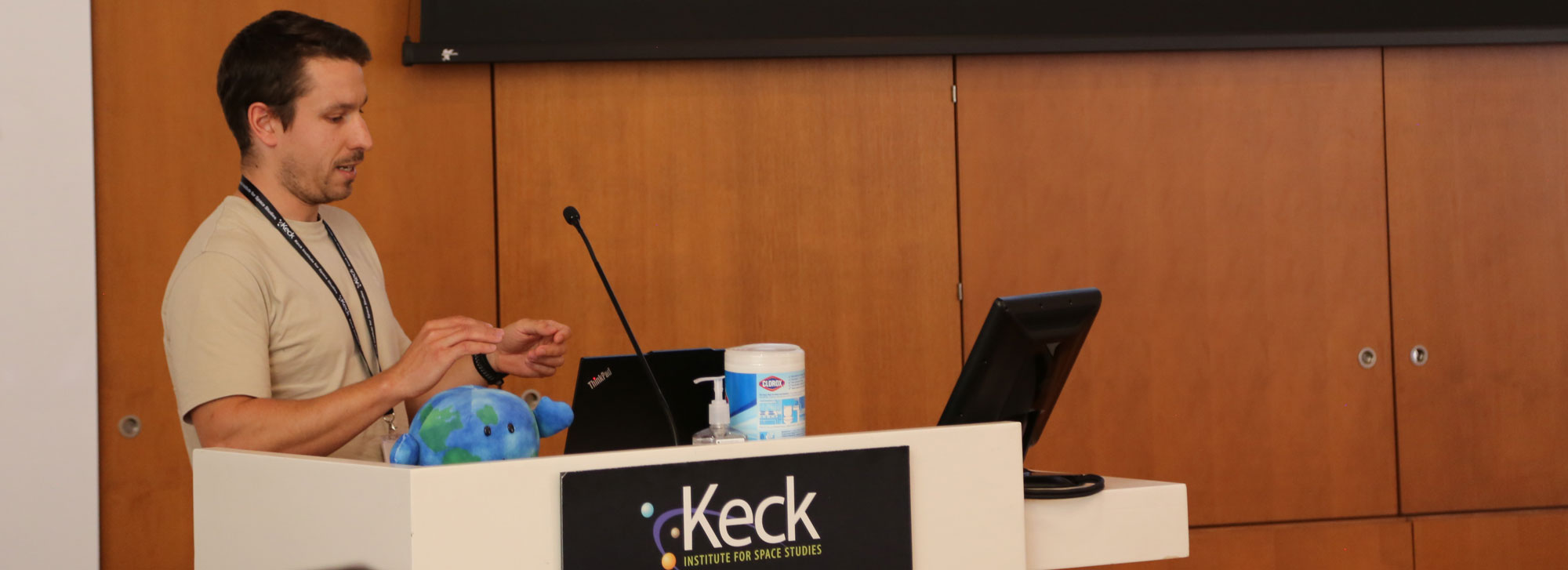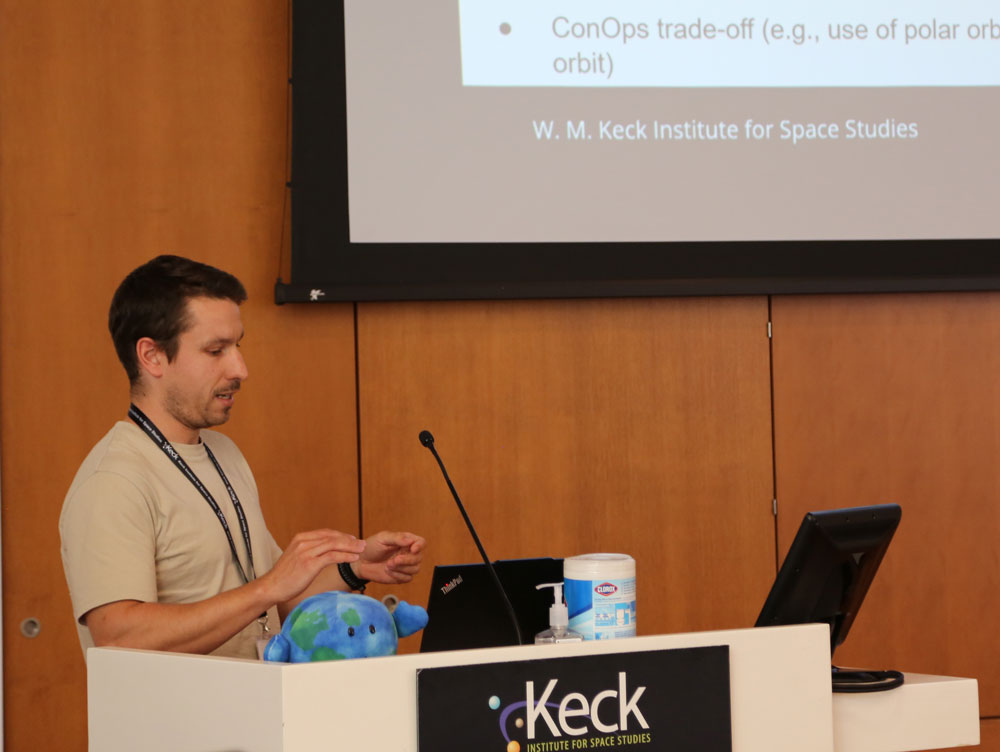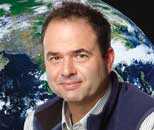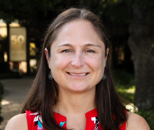Workshop Overview:
In the first workshop we collectively defined a Digital Exploration Twin (ET) for planetary mission formulation and execution to be: an evolving, dynamically updated, data-anchored, integrated software representation of the physical target and processes of interest, the spacecraft including instrument payload, and the concept of operations, including their error models, uncertainty quantification, and verification/validation.
The ET structure will consist of three primary interconnected workflows or graphs that are computationally linked:
- The Experiment Graph: Includes modules for the nature experiment permitting predictions of key parameters that need to be directly measured or indirectly inferred, modules describing an instrument observing capabilities including errors, and modules describing the concept of operations (ConOps). This graph could include nested digital twins that represent key physics, make predictions of key parameters that can be inferred from the proposed mission. Other components of this graph would encapsulate the ConOps including orbital parameters.
- The Accountant Graph: Keeps track of resource consumption (e.g., onboard data storage, downlink requirements, computational requirements, cost, mass, etc.)
- The Adjudicator Graph: In some cases, this graph would encapsulate the evaluation of whether science objectives are being met and in other cases would search for optimal design choices. This graph is likely the most important, impactful, and computationally taxing component of the ET. As the ET develops, the Adjudicator Graph will require more granular and complex connections to the other two graphs as it serves to orchestrate the exploration of the mission formulation solution space.
The objectives for this second workshop are:
- Review and (re)evaluate the Digital Exploration Twin prototype constructed between workshops and summarize the challenges faced
- Determine the ranges of abstractions needed for different ET components and the appropriate flavors of the adjudicator graph for the ET
- Identify what would be needed to generalize the ET beyond the Enceladus example
- Establish recommendations on using ETs for planetary exploration for our study team, for the broader community, and for agencies such as NASA
- Strategize funding avenues to support continued ET development
- Write the final report
